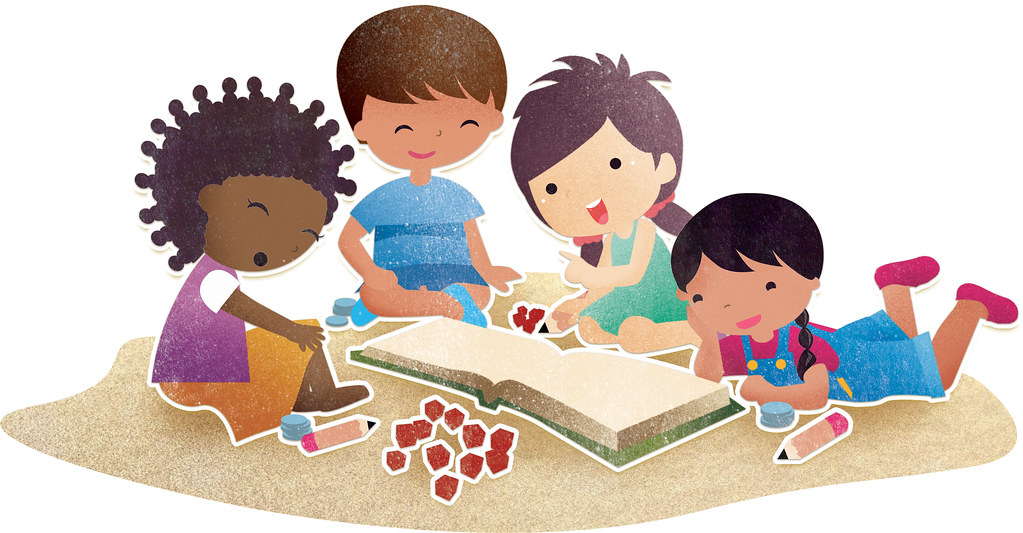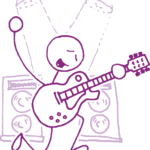Hi class! Nice to meet you all. I’m teacher Nikolaj, and today we’re talking about games!
But first, an introduction. I’m Nikolaj Bourguignon, a graphic designer turned child caretaker turned teacher. I teach Protestant religion in what I think in the United States would be Primary School—kids aged 6-12. I can do this because in Belgium (where I live and work) freedom of religion is written into our constitution in such a way that people can choose in what worldview they receive thought when they enroll in public schools. As far as I know we’re unique in this.
I also happen to like tabletop games of various kinds, from board and card games to roleplaying games. As a consequence I sometimes try to use or make some of those in order to teach. As such I have a lot of opinions, observations and ideas I can share about the restrictions and different perspectives needed to run games for kids, play games with them or even make them yourself.
This is a lot. Yes, I have a lot of opinions. I’m that kind of a person. I mean, I’m a teacher. It kind of comes with the job. This is why I’m thinking of making this into a series if it proves to be useful to people. This first article serves as a bit of an introduction, but I’m pretty sure you don’t just want to learn about me, so I’ll end this one with a list of games that I’ve found are suitable or inspirational for playing with kids, and possibly for teaching them if wanted. Playing for fun is also a good reason after all.
1. Happy Birthday Robot, by Evil Hat Games
Happy Birthday Robot is a fun little writing game that can be played with early readers/writers. I also found it surprisingly easy to hack and quite smart in its basic rules. I learned a lot from this game about elegant and efficient design.
Example: https://www.reddit.com/r/gametales/comments/9rlwv9/happy_birthday_robot_2_days_2_schools_5_groups/
2. Do: Pilgrims of the Flying Temple, by Evil Hat Games
Another word game/writing game with quite smart mechanics for writing. Can be used for “campaign play” or extended play, but basically in a manner like a “planet of the week” type Star Trek game. It’s a game about growing up, having friends and figuring out who you are. Your character doesn’t level up as much as change based on what happened during the game. I love this game. The growing through experiences reminds me of Erikson’s core conflicts in growing up. (https://www.verywellmind.com/what-is-conflict-2794976)
Example: https://www.reddit.com/r/gametales/comments/9rk5un/the_pilgrims_of_the_flying_temple_help_the/
3. Fall of Magic, by Heart of the Deernicorn
I have not played this yet, but I’m wanting to adapt it to tell a story about Jesus traveling with his disciples. I like how the reward is purely in the result. You enjoy this because you are telling a great story together. The story is the reward.
Example: https://www.youtube.com/watch?v=Y-bgr-uy-PU&feature=emb_logo
4. RISUS, the Anything RPG, by John S. Ross
Adaptable and quick. Very good for one offs. Also, rolling a lot of dice is fun. No core stats means every character is completely different.
5. FATE (CORE and Accelerated Edition), by Evil Hat Games
Have not used it with kids yet. It might be a bit too complicated, especially for the younger ones. But a very adaptable game. Might use it sometime, but now it’s mainly an inspiration. The concept of aspects that are always true is what I take away from this game. The fate point economy also tends to lead to cinematic play.
Example: https://www.youtube.com/playlist?list=PLvqvz1YMQF3TjwjsnNGc41s8yz4C6JGFK
This is a playlist where students from high school tell about their experiences with the game. It also shows how one could use it in class if you teach high school kids. My favorite one is the third video in the playlist where the girl showed how weird you can go with FATE by telling about the game they played.
6. Roll For Shoes, by DWeird
A very silly, very fast game with only the barest of rules. Very suited to end of class play if there’s enough time left. It’s completely free and completely online. It was born on a forum. Check it out here: https://rollforshoes.com The advancement system is what I mainly take away from this. And the speed created by playing with minimal rules.
Example: https://www.youtube.com/watch?v=hMXHpi9qfFY
This is not an exhaustive list, but rather the games that influenced me most and made me hack them or inspired me to make my own. But more on that, another time. I heard the bell, time for recess. Go play!
Have other ideas about RPGs that are good for a classroom setting? Share them with us in the comments!



Thanks for this work.